The Top Alternatives to HARO (Connectively) – Updated
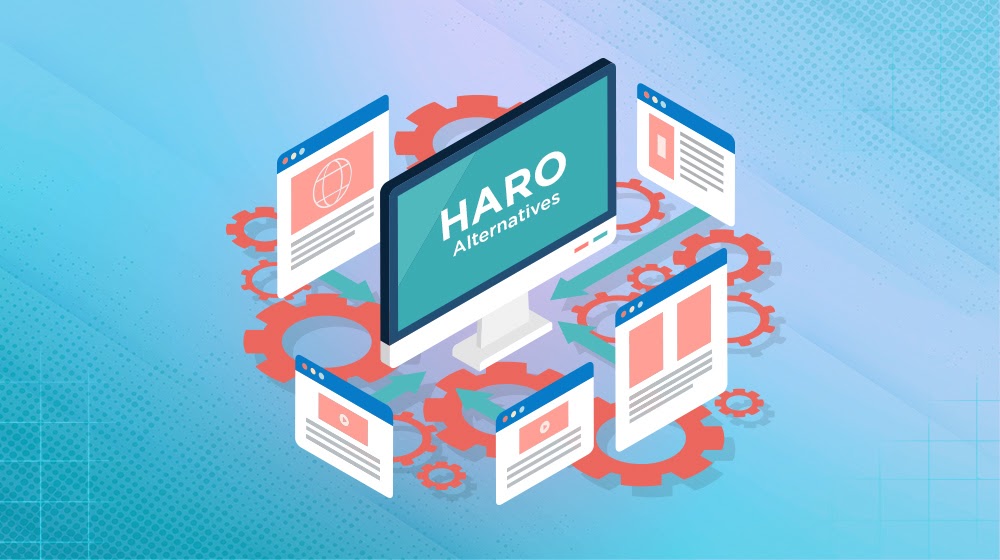
One of the foundational elements of all of SEO is the humble HTML link. Backlinks – the links that start on another site and link back to you – are a time-honored and immensely important aspect of SEO and marketing. A huge amount of the effort (and money, honestly) that we marketers spend goes toward earning those backlinks.
Well, many years ago, someone noticed something. Journalists, reporters, and other content creators working for online publications would frequently ask for expert sources, publishing quotes to demonstrate their point. Those quotes would be attributed with a citation, and for digital publications, that citation would almost always be a backlink.
This innovative individual (or rather, partnership) led to an idea: what if there was a website where both experts and journalists could sign up? A platform where journalists could put out a request for expertise, and experts could submit pitches for why that journalist should choose them.
That idea to help a reporter out was spun up into a business and rapidly became a powerhouse in marketing. The success of the idea led to many competitors over the years, which means we marketers are in a great position to be able to pick and choose to use any or all of them as much as we desire.
 30 Second Summary
30 Second Summary
You need a platform to connect with journalists and earn backlinks since HARO has shut down. You'll find several strong alternatives including Featured.com, Qwoted and SourceBottle. To succeed on these platforms, you have to respond quickly to opportunities, focus only on topics where you're truly an expert, and write personalized value-packed pitches. Make sure to track your results using tools like Google Alerts since journalists often don't notify you when they use your quotes. While free options exist, paying for priority access on top platforms typically brings better results.
What IS – Or Was – HARO?
It's no coincidence that I used the phrase "to help a reporter out" in the intro there. One of the oldest and most well-known of these platforms was exactly that. The founder was a guy named Peter Shankman, and his platform was named Help A Reporter Out, or HARO for short.
Peter founded HARO in 2008, first as a Facebook group and then as a mailing list. Sources could sign up to receive journalist opportunities in their inboxes, and journalists could reach out to him to have their pitches sent to the pool. Over time, his idea expanded into a web-based platform, though it still heavily relied on email along the way.
HARO saw a lot of ups and downs over the last 16 years. Just two years after it was founded, the PR firm Vocus bought it; some people didn't like the change, but others liked being able to trust a bigger name in PR, so it continued to grow.
Later, the PR firm Cision started buying up and merging with anyone in the industry they could find. They merged with Vocus and changed the name behind HARO to Cision, though the HARO platform remained largely the same.
That, as it turned out, was to its detriment. Cision owned HARO, but they didn't much care about HARO. Over time, the HARO service stagnated. Its operations, its audience, and its pool of experts and journalists all remained largely the same. There were no major upgrades or updates to how it worked or what it could do.
In a bid to breathe new life into HARO, early in 2024, Cision rebranded them to Connectively. A Shiny new homepage and nameplate didn't hide the fact that it was still the same thing behind the curtain.
Less than a year later, Cision announced the closure of Connectively, effective December 9, 2024. Thousands of journalists and tens of thousands of experts suddenly needed to find an alternative.
Why You Need a HARO Alternative
You need a HARO alternative because HARO is dead. That's really all it comes down to. The most well-known version of the formula was shut down, and that has left people scrambling. Or, if you're like me, just shifting your attention. After all, I've been testing, trialing, and making use of these platforms for years, and I never was satisfied with just one option.
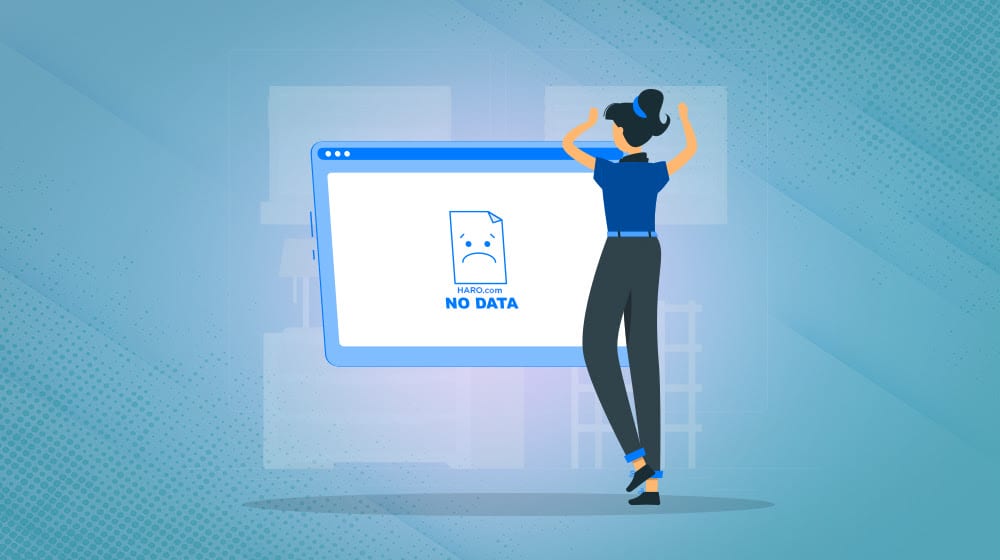
HARO was successful in its time, and it spawned a ton of competitors. Most of these competitors tried to find their own unique angle, their selling point that helped them stand out. Some focus on specific niches or industries. Some cater to high-end, high-volume clients. Some do the opposite and focus on small blogs and growth hacking. Whether it's niche, price, additional services, or other quirks of their operation, there are dozens of them out there.
Why you should trust my list
I've used them all. I've also gotten pretty good at using them! Good enough that I'm confident in using them to help boost my marketing clients and good enough that I've started offering a link-earning service to do the legwork for you.
In my mind, there are a few clear winners in the space and a lot of smaller platforms that can be useful or serve a specific role, but only a few come out ahead. Nevertheless, I've decided to write this list not to promote a few better platforms but to be as comprehensive as possible.

On that note, if you're aware of a HARO-like journalist outreach platform that I haven't mentioned in this post, feel free to mention it in the comments!
I also have deeper reviews for most of these platforms, which I'll link in their relevant sections.
How the HARO-Like PR Platforms Work
Before I get into the list, let's streamline things a little bit by talking about how HARO – and, by consequence, most of the HARO-likes – actually worked. That way, in each section, I can tell you how they differ from the norm rather than going through the basics over and over.

To start with, most of these platforms have two faces to them. One side is the side they show to journalists, and the other is the side they show to marketers and businesses. I'll refer to each side generally as the Journalists and the Sources.
For the Sources
Sources are people like you and me, business owners, blog owners, and the people who want to get backlinks out of this whole deal.
Sources are a dime a dozen. That's why we generally have to pay for these platforms, either per-pitch, for monthly access, or both. There are also usually filters or limits on how much we can use the platforms before we hit quotas or have to pay more.
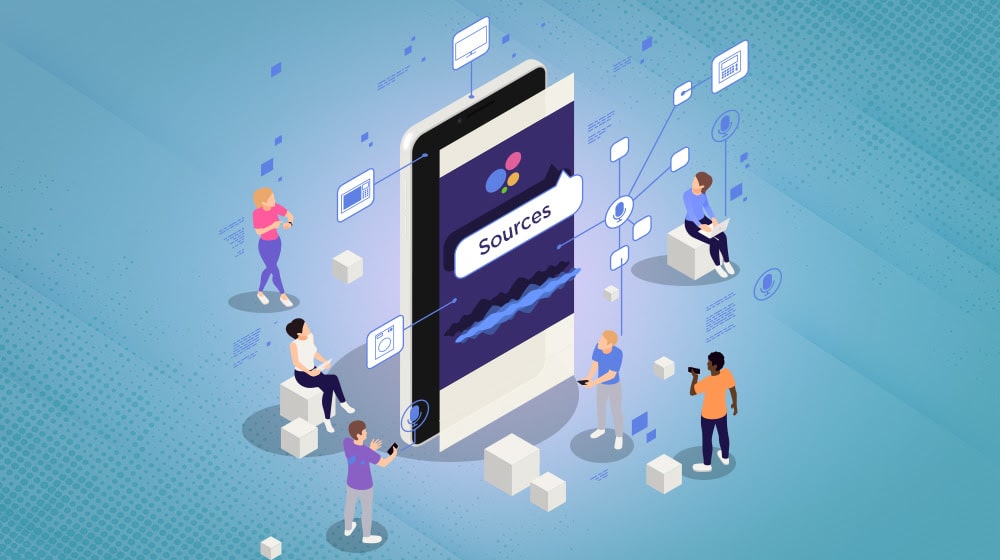
Generally, our role is also initially passive. Journalists submit their queries to the site, and when they're relevant, we receive them. We then submit pitches, and the journalists choose who they want to work with. Sometimes there's a follow-up, sometimes there isn't. It all depends not just on the platform but on the journalist.
For the Journalists
Journalists are in relatively short supply and are the lifeblood of the journalist outreach platforms. They're the ones providing value to the site, after all; without them, sources don't do anything, can't get anything of value, and the whole plan collapses.
That's why journalists are treated well. It's almost always completely free for a journalist to submit a pitch to these sites, and they have a lot of options for filtering and combing through the pitches they receive. It's also usually up to them if they even provide a link; it's often not a requirement at all.

Usually, it's also quite low-friction. Many of these sites don't even require that a journalist create an account; it's as simple as filling out a form to have their pitch sent to the mailing lists or contact lists for sources to see.
How to Be Successful on a Journalist Outreach Platform
As I mentioned, I've been using many of these sites for years, so I've gotten them down to a bit of a science. Here are my biggest tips for using them successfully.
Temper your expectations
First, to temper expectations, know that you're not going to sign up, toss out pitches, and get tons of backlinks. Competition is fierce, and you're going to need to put your best foot forward to get a journalist to look at you.

All of my other tips are largely focused on getting a higher success rate out of your activity, so you aren't just wasting everyone's time.
Playing both sides
One thing I want to bring up is that, as blog owners, we can play both sides of the coin. We can be expert sources so we can earn backlinks from journalists. We can also leverage our position as content creators to solicit expert opinions and link out ourselves.
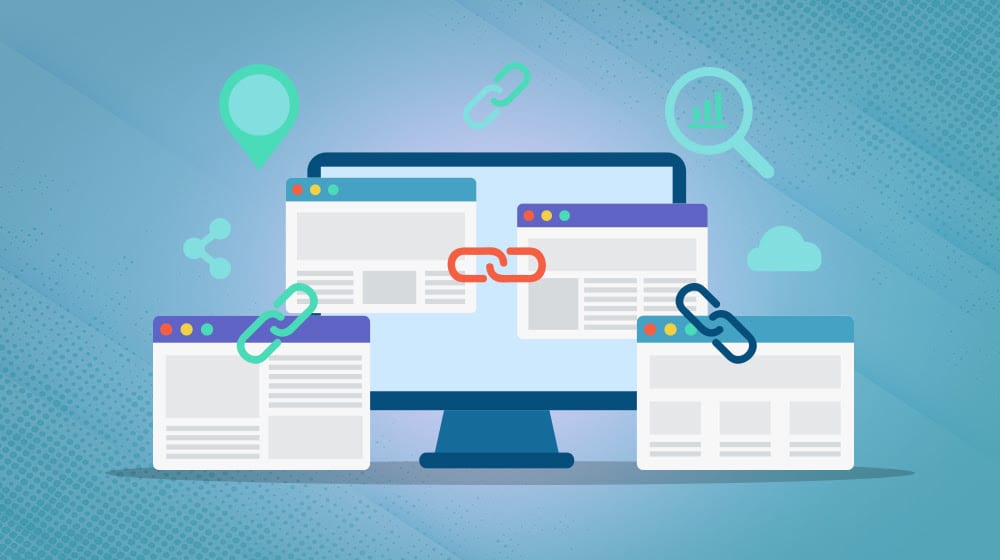
While you don't get immediate SEO benefits from being a journalist, you do get other benefits. You become sought-after, you have great information for your blog, and you can build relationships that can go both ways. I recommend giving it a try.
Writing a good pitch
Actually writing a good pitch can be different depending on the site you're using since they work in different ways and have different formats.

At the end of the day, though, a good pitch shares certain qualities, no matter what site you're sending it to.
- It's tightly focused on answering the actual question a journalist is asking. The more generic, off-topic, or meandering your response, the less valuable it is.
- It provides all of its value up-front. You can't get away with a teaser of "I know this answer, but you have to ask me." A journalist isn't going to have that much time or energy, let alone the inclination to play information tag with you. They can ask for more later if they want, but give them what they ask for up-front.
- It includes a brief but relevant bio. Some platforms let you make a profile, others don't. Either way, you should have 2-3 sentences about who you are and why the journalist should trust your expertise.
I also have two big no-nos to mention.
- Don't rely on templates. You can template some information, like your bio or a general format for an answer, but templates don't feel personalized enough, and especially if you use them for the same journalists frequently, they'll become recognizable.
- Don't ask ChatGPT or another AI to write your pitch for you. Trust me, the journalists can tell when you actually know what you're talking about or if you're relying on a tool, and if they wanted a tool to answer, they could have asked it themselves.
These are the general rules I follow to get results, along with tailoring for both the journalist and the platform as necessary.
Responding quickly
One of the biggest keys to success on a journalist outreach platform is, unfortunately, speed. Simply being one of the first ten pitches to hit a journalist's inbox is a huge advantage. If you delay, there's a decent chance that the journalist will already have found their solution before your email even arrives.

Learn when your opportunities come in, and be ready to respond as fast as you can. For some platforms, you may need to pay extra for priority access to opportunities, and in most cases, it's well worth it.
Focusing on expert topics
One of the biggest things sources get wrong is trying to respond to nearly every pitch they can, even if they aren't really experts in the topic. Sometimes, you can get away with it – I represent clients in a lot of different industries and can write convincingly for all of them – but the less aligned it is to your topic, the worse your results will be.

This is doubly important to keep in mind simply because some platforms allow journalists to mark you as spam if they don't like your attempts. Worse, if that happens, you can be permanently banned from the site. It's not worth the risk. Stick to topics you really know.
Tracking your own results
Finally, one big thing I have to mention is the difficulty that comes from using these platforms to build ( or earn) backlinks: it's often hard to tell the difference between success and failure.
One commonality between nearly all of the HARO-like platforms and Connectively alternatives is the fact that they have very little feedback from journalists. Journalists aren't required to report back when they publish their content, they often aren't required to add a link at all, and if they are, they don't have to tell you.

When I was first starting out, I actually thought I was doing way worse on these sites than I was. I would fire off good pitches and never hear back, which is disheartening at best, especially when you have money on the line to pay for it.
Then, I started using social listening, search mentions, and link monitoring tools. The simplest option is Google Alerts, but there are many more premium products for link tracking you can use as well. These will let you know when your pitches are published, even if the journalist and the site never tell you. In my mind, this kind of tracking is mandatory if you want to have any idea of how successful you are on the platforms.
Now, with all of the basics out of the way, let's get on with the grand list of Connectively alternatives.
#1: Featured.com
For my money, Featured.com (formerly known as Terkel) is the best PR and journalist outreach platform currently available. It's the one I've had the most success with over the last couple of years and the one that is most consistently valuable. They have a lot of big-name publications, like Fortune and Fast Company, using them on the journalist side.
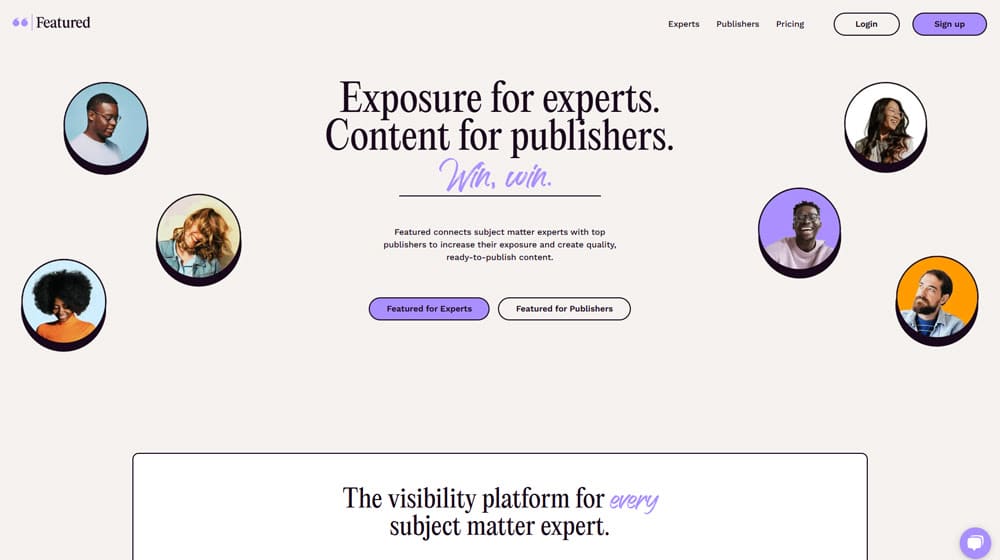
That said, there is one downside: journalists getting quotes are required to add a "Brought to you by Featured.com" attribution to their posts. Since this line is very easy for Google to track, I think it can devalue the links you get from it by a little bit, though they're still useful… at least for now.
You can read more about my thoughts on Featured.com in my review here.
#2: Qwoted
Qwoted is tied for #2, in my opinion, for the best Connectively alternative. It changes the names around a bit (calling Journalists Media Accounts instead), but it mostly works the same way.
One significant difference is that Qwoted anonymizes pitches. You see some basic information about a pitch, but you have to spend a credit to unlock it to see more and send a pitch. This helps prevent people from fishing just for the big-name publications and forces you to judge an opportunity based on subject matter instead. It does, however, mean you can be locked into sending a pitch to a low-quality or even deindexed site, wasting a credit.
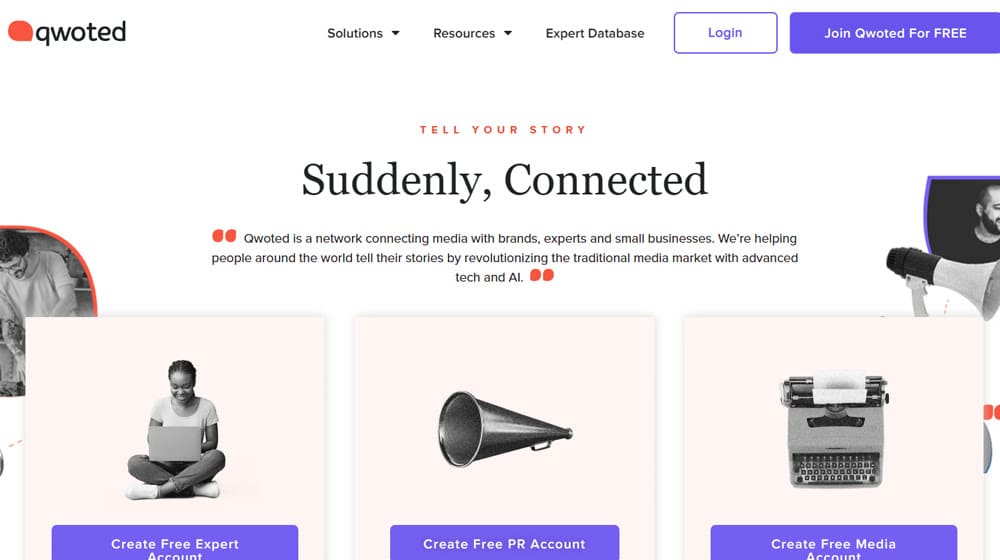
Qwoted also has some additional kinds of requests, such as product reviews, the option to request guests for a podcast or video, and more.
Qwoted is a little more expensive than some of the other HARO-likes, but it's pretty good in terms of results. You can read more about it in my review here.
#3: SourceBottle
When I say Qwoted is tied for #2, that's because SourceBottle is also up there. Neither one of them is quite as good as Featured, but they're close.
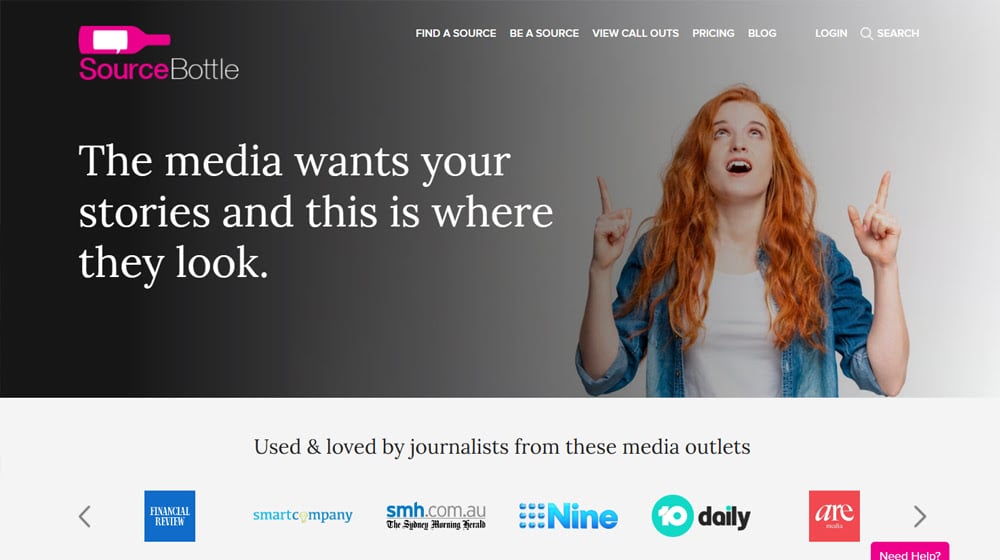
One of the benefits of SourceBottle is that they're international. While most (but not all) other HARO-likes are heavily centered on US sites, SourceBottle has a decent audience in countries like Canada, New Zealand, and Singapore. They also allow you to set up an Expert Profile, which serves as a more static bio, so you don't have to fill out your key info every time.
While I do think you need to pay for an account instead of using the free plan, it's on the cheaper end of PR platforms, so it's worth a look. For more information, check my full review here.
#4: Help a B2B Writer
After this point, most of the rest of the items on this list are unordered. I could try to rank them, but it's not really worth it; just pick them based on their other major features.
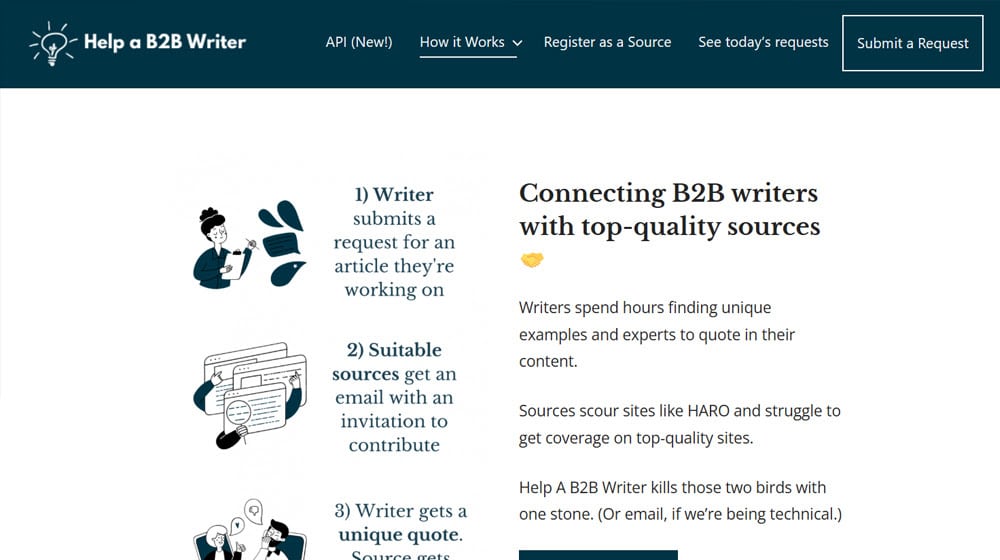
Help a B2B Writer is, as is obvious from the name, a play on Help a Reporter Out. It recognizes that a lot of times, it's people like me running a blog rather than an actual journalist looking for information. B2B writers have specific kinds of concerns and perspectives, so focusing on that niche can help.
One of the biggest benefits – and potential drawbacks – to Help a B2B Writer is that it's free for both the Writers and the Sources. That makes it a fairly casual platform with a lot of potential spam issues. That, combined with the narrow focus on B2B, means it's not for everyone, but it can be useful for those that fit. I also have a deeper review of it here if you want to know more.
#5: JournoLink
Next up, we have JournoLink. JournoLink is a lot like Connectively and the other similar platforms, but with one significant difference: it's entirely focused on the UK. They also have a couple of extra features to make being a source more valuable, including a press release distribution service and a static contact list for journalists and publications you can use to be the one to reach out.
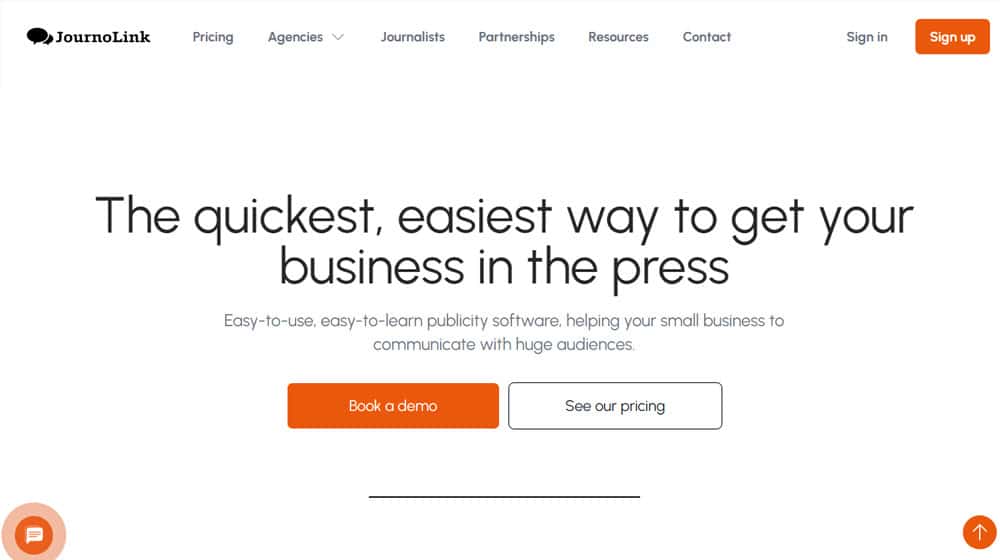
While they have a sizable contact list and a lot of opportunities, the limitation to solely UK publications can be steep. They also have strict content guidelines for pitches and submissions, and violating them can get your pitch blocked or even get you removed from the platform.
It's very much a platform that you either get a ton of value out of or you get nothing out of, with almost no in-between.
#6: ResponseSource
Up above, where I mentioned that Peter Shankman had the idea to create a journalist outreach platform, I lied a little bit. The idea actually predated him by over a decade, when ResponseSource was founded as the Journalist Enquiry Service. It's easy to forgive the misattribution, though, as ResponseSource started in the UK and took a while to expand beyond its borders.
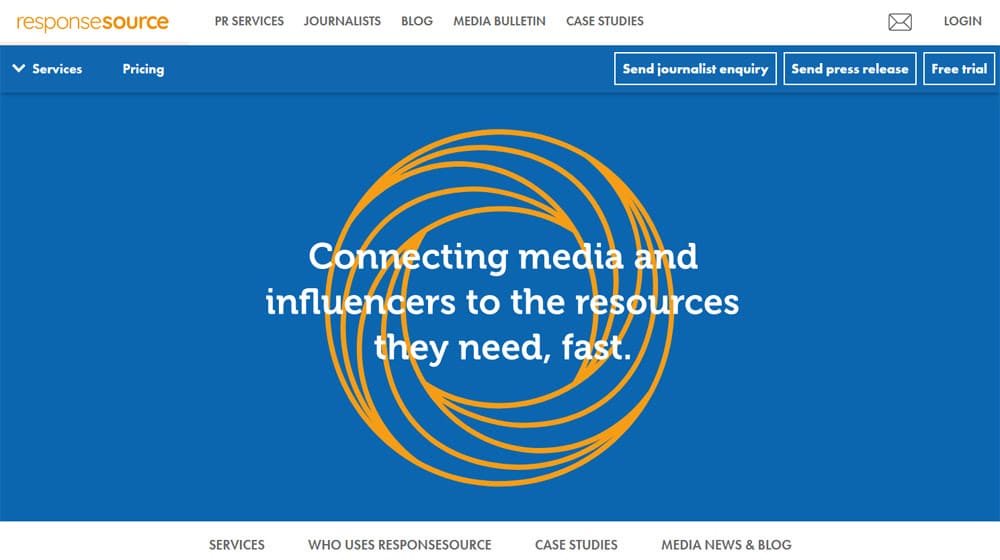
Today, ResponseSource is powerful, but it's also heavily linked to existing PR services from Vuelio and the general Access Intelligence PR network. There's nothing wrong with that; just know that their HARO-like service is just a small part of what they do. You're likely to be asked about upsells and cross-sells for the Vuelio contact database or their press release distribution service, both of which are expensive.
In my view, ResponseSource is potentially quite valuable but also quite expensive for what they offer. You can read a deeper analysis of the platform over here.
#7: Source of Sources
When Peter Shankman invented HARO, he ran it successfully as a Facebook group, and then, when it got too large to feasibly be managed over social media, transitioned it to email. Just a couple of years into it, though, he sold it and lived his life as a financially independent resident of New York City, helping local businesses grow in their own way and forging local connections.
Over time, he watched HARO stagnate, but he resisted the urge to step back in. That is until HARO rebranded and was subsequently shut down. At that point, enough people were begging him to "do it again" that he did just that. The result is SoS, or Source of Sources, a new email-based journalist pitching platform. Journalists give him requests to send to his mailing lists, with reply-to email addresses for pitches, and it's as simple as that.
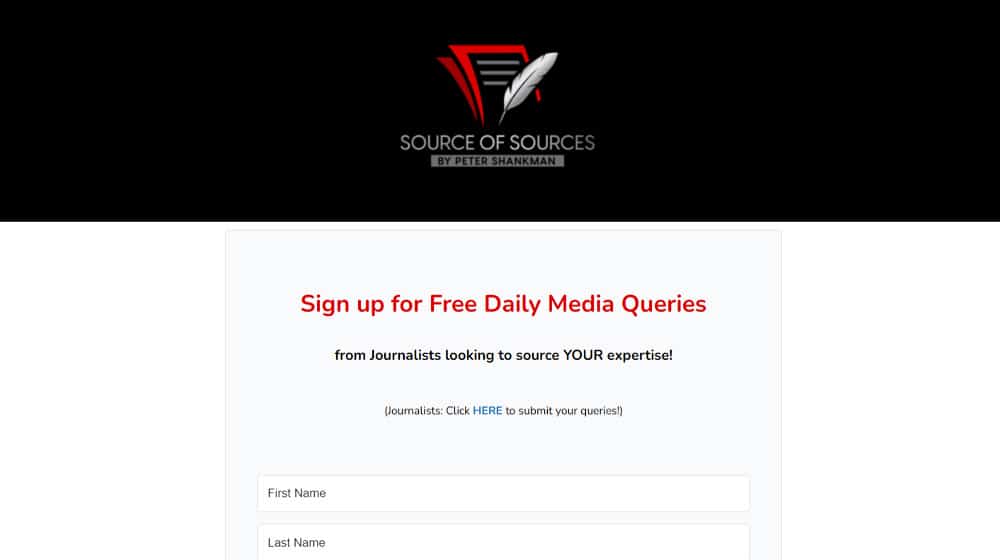
SoS is completely free, with a one-strike-you're-out policy for spammers. With Shankman's pedigree, it's quite useful, but it's also fairly limited. I'd recommend keeping an eye on it once you read my full review here.
#8: PR Hunters
PR Hunters is perhaps one of the lightest iterations of the HARO formula. Sources can sign up for a plan, free or paid, with very little difference between them. The paid plan is very inexpensive as well, clocking in at just $5 per month.
When you sign up, you're enrolling in a mailing list that gives you daily lists of journalist opportunities you can use to then reach out and pitch. If you pay for a plan instead of a daily digest, you get emails the moment PR Hunters sees them instead.
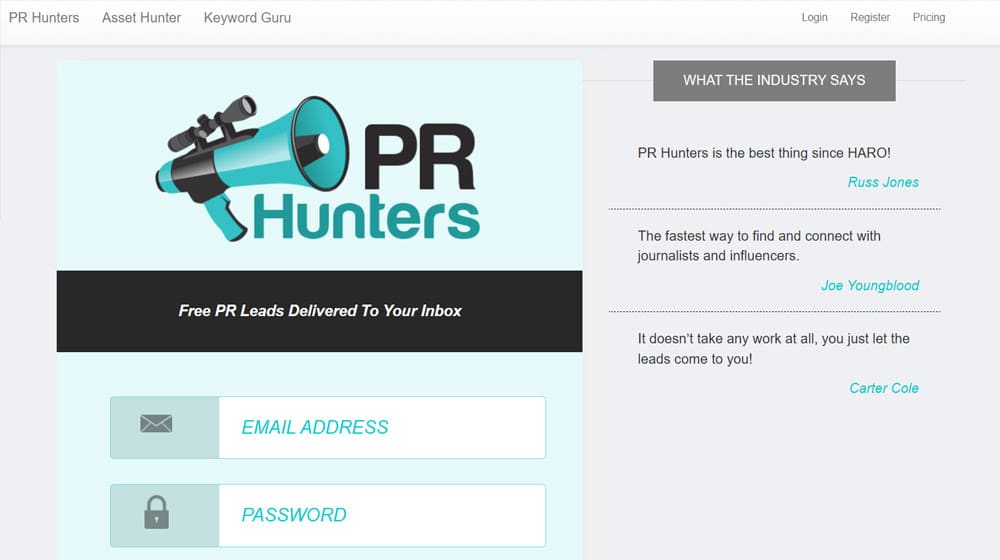
The downside is that there's no place for journalists to submit their own requests. Instead, all they do is watch and scrape Twitter/X for their journalist opportunities. I don't personally think this is very useful, especially since one of the other options on this list is to just watch those social media hashtags yourself, but if you want a bit of automated social listening and don't mind paying a small fee for it, maybe it can work for you. I have more on this option here, too.
#9: CisionOne
If you read the first half of this post, you already know about Cision, the massive PR firm that bought up a lot of the industry, including HARO. While HARO was rebranded to Connectively and Connectively was shut down, Cision wanted to keep some form of PR outreach available. CisionOne is their attempt.
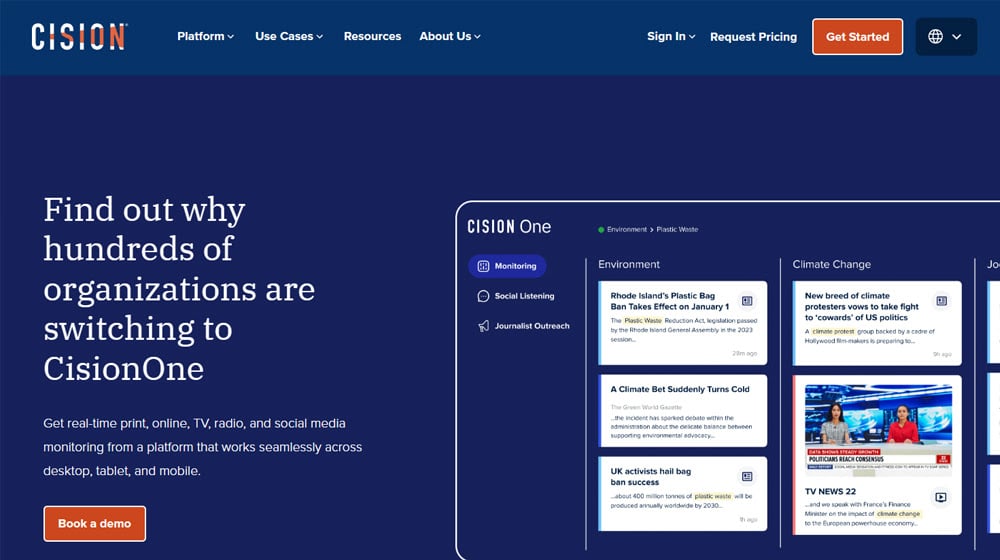
Despite being more or less the same kind of platform from the same provider, CisionOne and HARO are fairly different. CisionOne doesn't rely as much on email digests, puts stronger limits on pitches, and is generally less well-used than Connectively was.
I don't have anything specifically against CisionOne, as down on it as I might sound here. I think they alienated a lot of HARO users, but if they support it well enough and bring in more valuable journalists, it could work out to be a very useful platform. On the other hand, Cision has a pretty poor track record here, so it's entirely possible they'll ignore the platform until it fails and then shut it down again. Whatever the case, if you want more information, I have a post on it here.
#10: Editorielle
Editorielle is another UK-based spin on the Connectively formula. It's also somewhat unique in that it was founded by a PR expert working in luxury fashion. As such, the core industries they work with tend to be the "Pinterest Pack" style industries: beauty, fashion, health, decorating, DIY, arts, and the like.
That's not to say they exclude the other industries, of course. They're still well-represented. It just tends to lean more towards Better Homes & Gardens than Fortune.
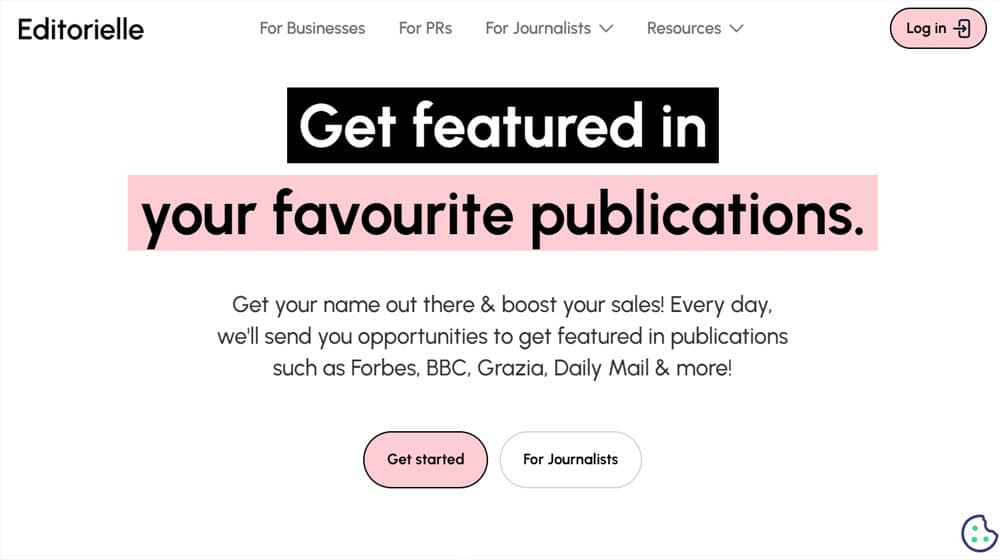
Between the different angles on industry and the UK emphasis, it can be difficult for certain businesses to make use of them. But, again, if you fit in with what they have to offer, it can be a very useful resource that people in other industries can't take advantage of in the same way. Additionally, it's also quite cheap (though the prices are in British pounds), so it can be worth a shot one way or the other.
#11: #JournoRequest
JournRequest isn't a site; I'm talking here about the hashtag #JournoRequest. This, and other PR-focused variations on the concept, can be used on nearly any social network that supports hashtags. It's basically what PR Hunters scrapes for their service.
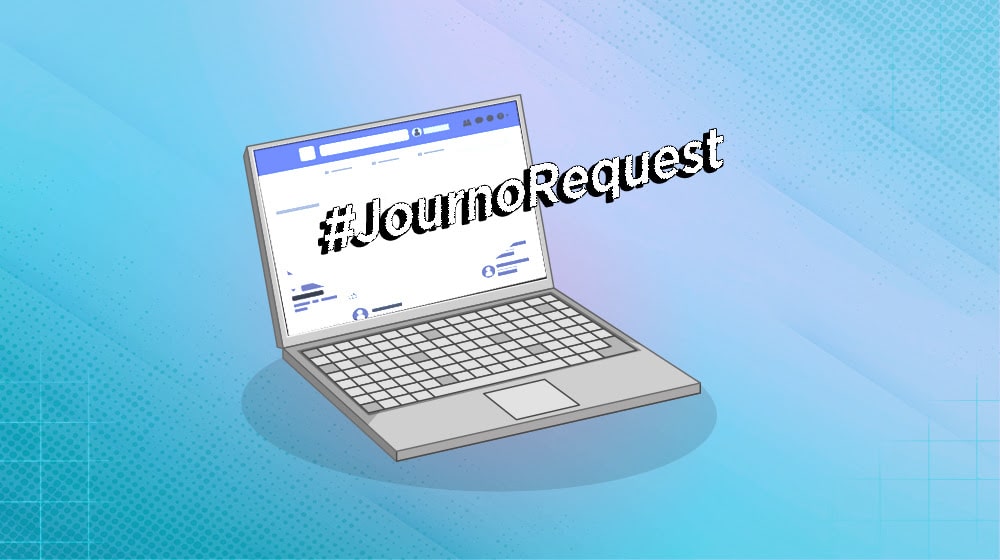
These days, of course, X.com is on its way out, and a lot of the more reputable journalists have moved to other platforms or to more direct means of communication with sources. The hashtag does still work on Bluesky and Threads, though, as well as being a potential option on Mastodon and even Tumblr.
There's no payment to use these, but there's also no barrier or filter. You have to keep an eye on the hashtag feeds, see what journalists are asking for, and pitch directly over social media. It's a bit more challenging but also directly rewarding when you land it because there's no third party getting in between you and the other party. In a sense, it's the most pure form of journalist outreach there can be.
#12: PitchBox
PitchBox is what happens if you take something like the HARO concept and invest a ton of time, money, and effort into developing a huge outreach platform around it.
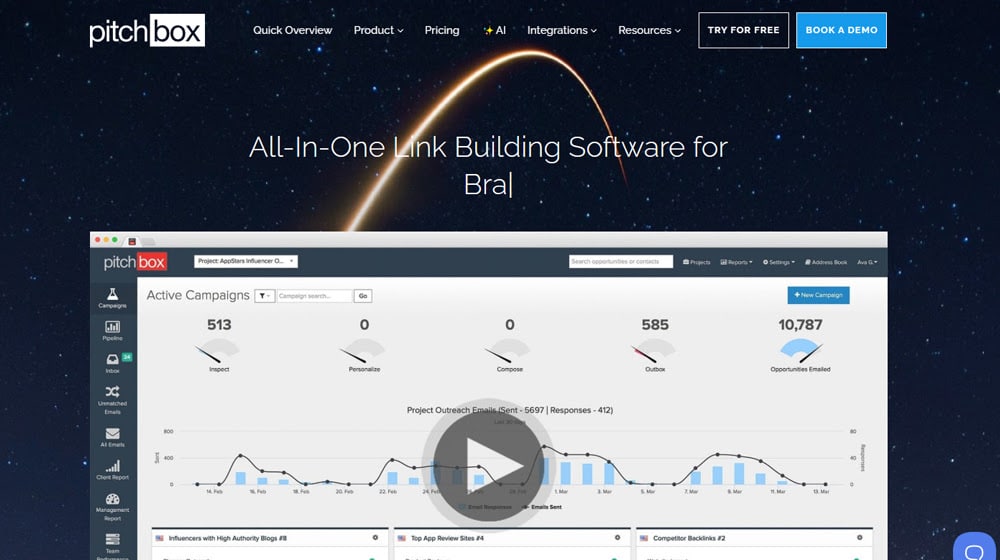
It does a ton of automation to help you pitch and follow up on requests with journalists and other content creators. It's also much more blatantly designed as a marketing tool; journalists don't actually have their side of the coin, PitchBox just has a database of contacts to reach out to. PitchBox is also pretty expensive, clocking in at $200 per month at the cheapest, so it's very much not for everyone.
#13: PitchRate
PitchRate is a much more traditional HARO-like, with expert sources on one end and journalists on the other. They boast nearly 8,000 expert sources and 3,000 journalists, along with 2,600 publicists using their platform. There are usually somewhere between 40 and 100 active pitches at any given time, so there's a decent chance there will be something that suits your needs.
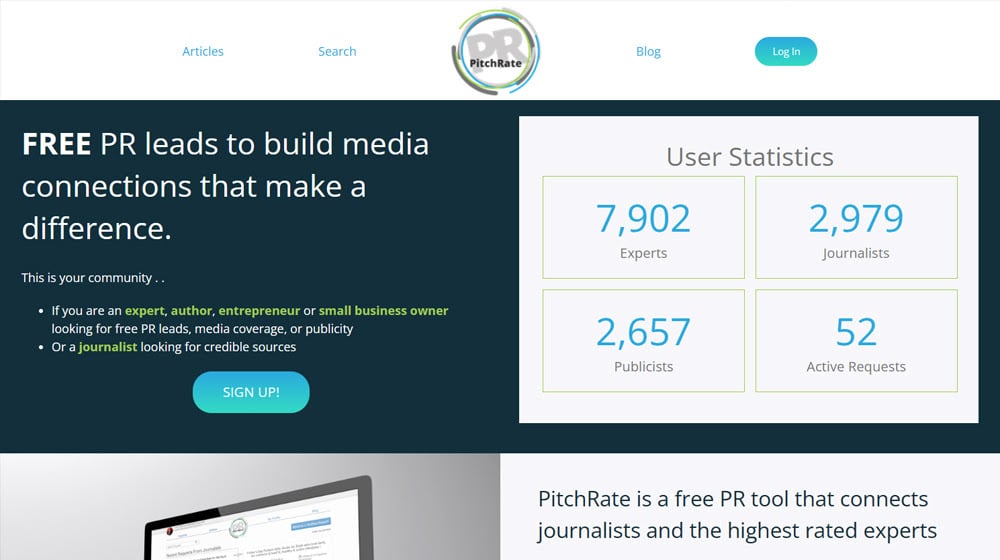
One of the unique aspects of PitchRate is that it allows journalists to rate and review the sources that pitch them. Experts can't see their own rating (though if you register as a journalist, you can scope them out), but it can impact how well you can interact with journalists down the road.
PitchRate is free for both sides to use, so it's a viable option to try out and see if journalist outreach is right for you.
#14: OnePitch
OnePitch is an interesting spin on the Connectively concept. Sources sign up and submit a general pitch about who they are and what they have to offer. OnePitch takes and analyzes that pitch and then recommends a list of journalists and media outlets that cover those kinds of topics. The idea is that instead of building a whole big list of journalists to send your pitches to individually, you submit one pitch to OnePitch and get a much better idea of who will respond well to it.
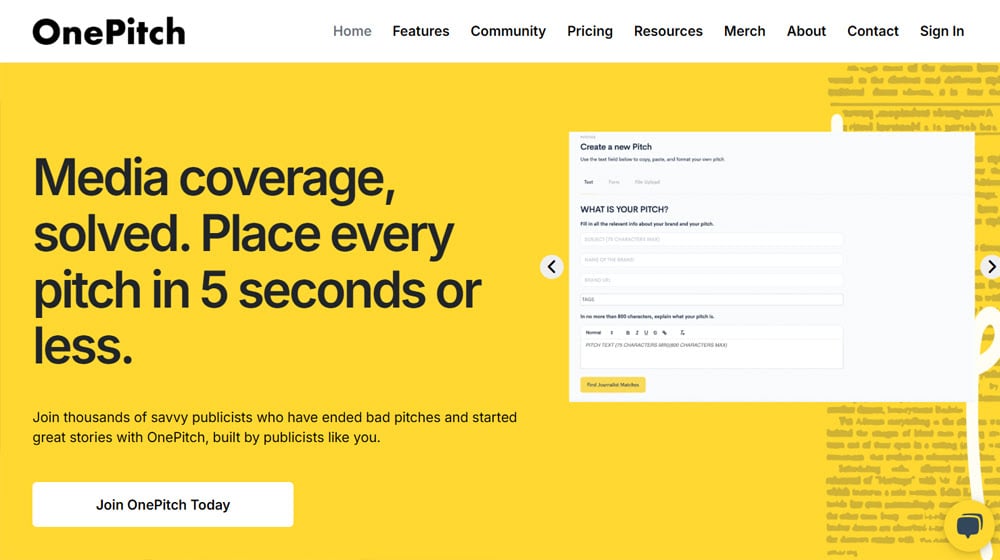
OnePitch doesn't do anything you couldn't do on your own, but they can find some publications you might not otherwise know about, so it's a fine option to try.
#15: JustReachOut
JustReachOut decided that HARO was too narrow in its focus on just journalists and expanded to many different forms of content creators. Whether it's YouTube creators, social media influencers, or business bloggers, you can sign up as either the expert source or the content creator role, or both.
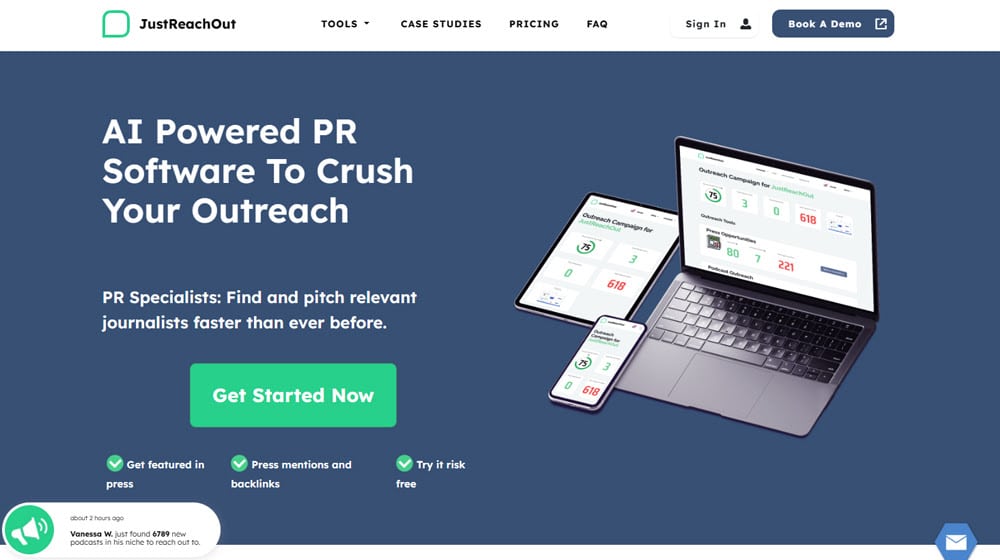
In particular, JustReachOut is a very useful way to show up on podcasts if you want to be a podcast guest. It's a little pricey but not nearly as much as some other platforms, so it's a reasonably effective option.
#16: Muck Rack
Muck Rack is one of the more powerful journalist outreach platforms out there. You can search through journalists to find ones working on the kinds of topics you can provide expertise for, and can reach out to them directly. You can monitor news, both for ways you can follow up on a story and ways you can find the results of past outreach. You can also monitor coverage and reporting. In a way, it combines journalist outreach with social listening and mention alerts.
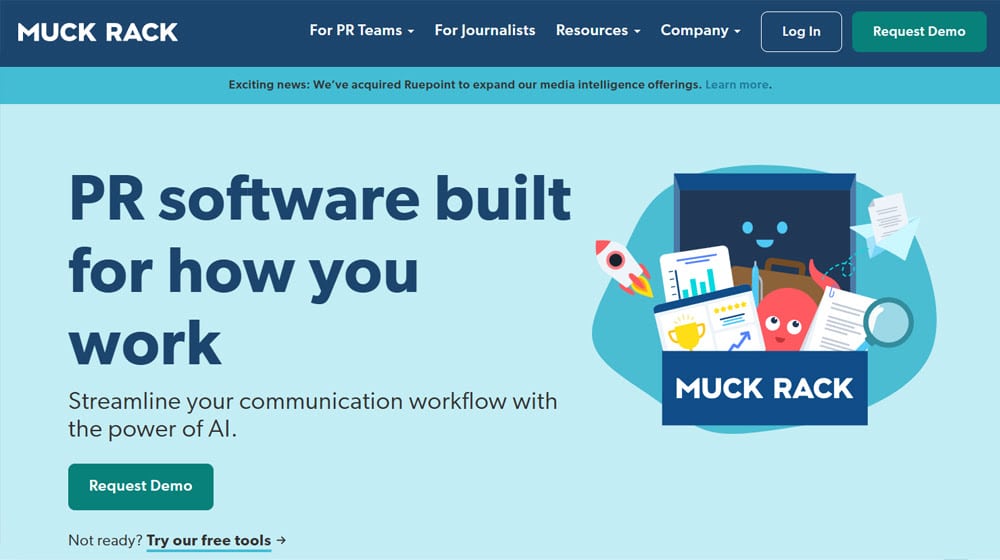
It is, unfortunately, fantastically expensive, clocking in at $5,000 per year.
#17: Kiti
Kiti is a unique spin on the HARO formula. It shares some DNA with Editorielle in that it's focused on lifestyle, culture, travel, and similar niches. The biggest quirk, however, is that they're essentially invite-only. You have to apply for access, and they have to review and approve you.
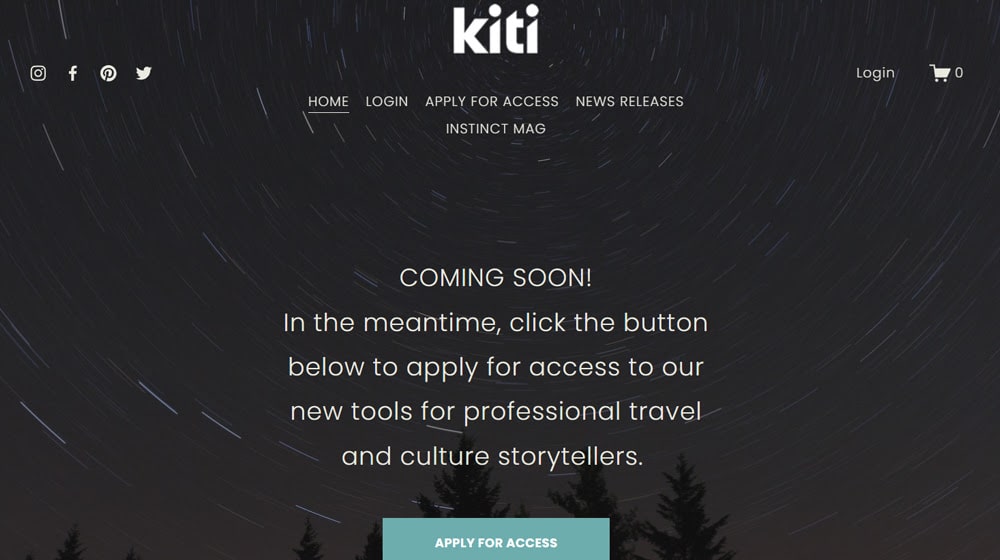
Their standards are quite high, and basic marketers aren't likely to get in, but if you can get the hookup, the connections you make are uniquely valuable because of it.



 30 Second Summary
30 Second Summary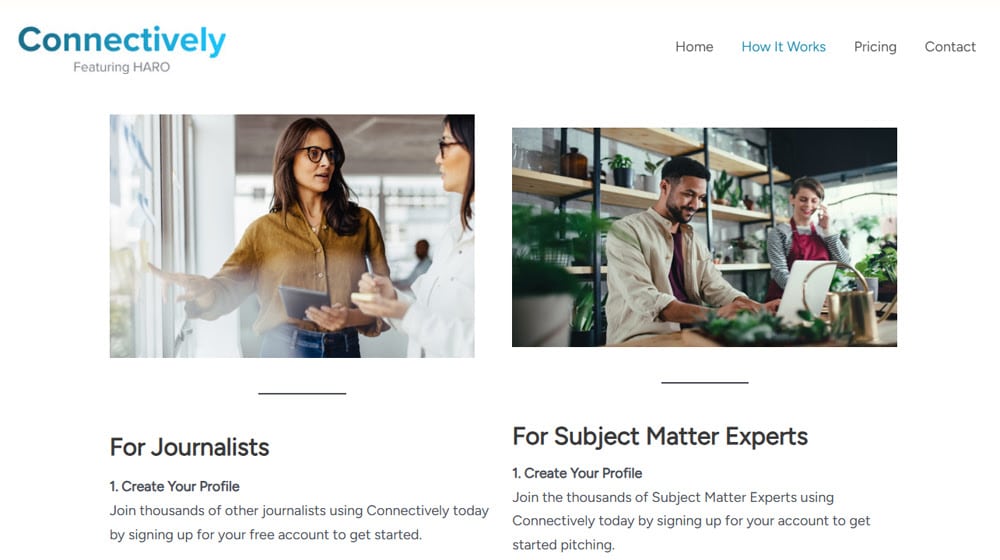
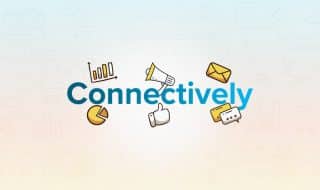

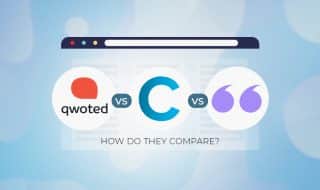

Comments